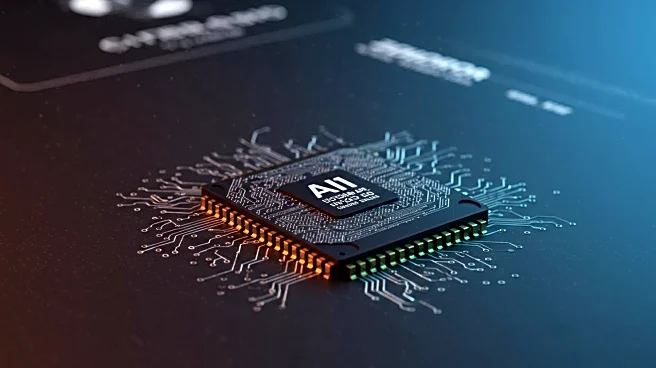What's Happening?
President Trump has postponed tariff talks with China for another 90 days, temporarily alleviating concerns over global economic tensions. The delay comes amid discussions about a deal involving Nvidia, which would require the company to pay 15 percent of its revenue from AI chip sales to China. This arrangement raises questions about the perception of U.S. companies like Nvidia, Apple, and Tesla as extensions of the U.S. government, potentially altering the traditional view of American capitalism.
Why It's Important?
The postponement of trade talks with China has significant implications for the global economy, particularly in the technology sector. The deal with Nvidia could set a precedent for how U.S. companies operate internationally, potentially affecting their independence and market strategies. The situation underscores the complexities of international trade negotiations and the balancing act between economic interests and national security concerns.
What's Next?
As the trade talks are postponed, stakeholders in the technology and business sectors will closely monitor developments, particularly regarding the implications for AI chip sales and international business operations. The ongoing discussions may influence future trade policies and agreements between the U.S. and China, impacting industries reliant on technology and international commerce.
Beyond the Headlines
The arrangement with Nvidia highlights broader questions about the role of government in business and the evolving nature of capitalism. The perception of U.S. companies as government extensions could affect their global reputation and relationships with international partners, potentially leading to shifts in business practices and regulatory frameworks.









